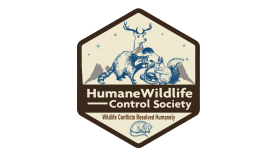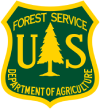Humane Wildlife Control in Memphis, TN
The Humane Wildlife Control Society recommends non-invasive solutions to resolve human-wildlife conflicts. This includes:
Determining if the issue needs to be addressed at all
Opting for preventative measures first
Opting for wildlife exclusion as opposed to trapping
If trapping is the only way to solve the problem do so humanely
The Humane Wildlife Control Society screens candidates prior to recommendation. Our process requires any company we recommend to meet the following criteria:
Is properly licensed in Tennessee for wildlife control
Carries appropriate business licenses and insurance
Complies with all Tennessee laws and regulations for wildlife control
Adheres to the humane principles listed above.
In Memphis, Tennessee we recommend Humane Wildlife Removal Memphis for professional wildlife control services. This is a private company that charges for their services.
Contact Information:
Critter Control
901-457-5919
If you have any wildlife issues that can be handled by the state government agency for free, the Tennessee Wildlife Commission can help.
State Contact Information: (615) 781-6622
The State Department of Agriculture may also be able to address your wildlife problem for no charge.
USDA Contact Information: (615) 837-5191
Handling Nuisance Wildlife in Memphis, Tennessee: A Practical Guide for Residents Memphis, Tennessee, is a city where urban life meets natural habitats, making it home to a variety of wildlife such as raccoons, squirrels, opossums, skunks, and birds. While these animals play an important role in our ecosystem, they can sometimes become a nuisance when they encroach on human spaces. The City of Memphis is committed to helping residents handle nuisance wildlife in a safe, legal, and humane manner. Understanding Nuisance Wildlife Raccoons: Known for rummaging through trash or seeking shelter in attics and crawl spaces. Squirrels: May chew on wires or nest in chimneys, posing fire hazards or structural damage. Opossums: Often found in yards or under decks, sometimes causing minor disturbances. Skunks: Recognized for their strong odor, they may dig up lawns or take refuge under structures. Birds: Species like pigeons or starlings may nest in vents or eaves, leading to noise or blockages. Legal and Ethical Considerations Protected Species: Many wildlife species are protected under Tennessee state law and federal regulations. It is illegal to harm, capture, or kill these animals without proper permits. Humane Treatment: Always prioritize humane methods that minimize harm to animals. Local Ordinances: Follow Memphis city ordinances and Tennessee Wildlife Resources Agency (TWRA) regulations when addressing wildlife issues. Practical Steps for Handling Nuisance Wildlife 1. Prevention Secure Trash: Use animal-resistant trash bins and keep lids tightly closed. Remove Food Sources: Avoid leaving pet food outdoors and clean up fallen fruit or birdseed. Seal Entry Points: Inspect your home for gaps in roofs, vents, or foundations, and seal them with durable materials like metal mesh or caulk. 2. Exclusion Install Barriers: Use chimney caps, vent covers, or mesh screens to block entry points. Fencing: Install fencing around gardens or other areas to deter animals. 3. Habitat Modification Remove Shelters: Clear away woodpiles, dense vegetation, or debris that could serve as animal shelters. Use Deterrents: Motion-activated lights, sprinklers, or ultrasonic devices can discourage wildlife from entering your property. 4. Non-Lethal Removal Live Traps: Use live traps to capture and relocate animals. Always check traps frequently and follow TWRA guidelines for relocation. Professional Help: Contact licensed wildlife control professionals who specialize in humane removal methods. 5. Professional Assistance Licensed Wildlife Control Operators: These professionals can safely remove animals and provide advice on preventing future issues. Wildlife Rehabilitators: For injured or orphaned animals, contact local wildlife rehabilitation centers. Why Humane and Legal Solutions Matter Ethical Responsibility: Treating animals with compassion reflects our commitment to preserving life and biodiversity. Public Safety: Proper management reduces risks to residents and animals. Legal Compliance: Following laws and regulations ensures you avoid fines or penalties. Ecological Balance: Protecting wildlife helps maintain healthy ecosystems. Memphis’s Commitment to Residents and Wildlife How You Can Help Educate yourself and others about local wildlife and humane management practices. Secure your property to prevent attracting animals. Support local wildlife rehabilitation centers and conservation efforts. Report injured or orphaned wildlife to licensed professionals for care.
Nuisance wildlife refers to animals that cause problems by damaging property, creating health risks, or disrupting daily life. Common issues include:
Before taking action, it’s important to understand the legal and ethical guidelines for handling nuisance wildlife in Memphis:
The City of Memphis encourages residents to address nuisance wildlife using the following practical and humane strategies:
The best way to handle nuisance wildlife is to prevent conflicts before they arise:
Use humane exclusion methods to keep wildlife out of your property:
Make your property less attractive to wildlife:
If wildlife has already entered your property, consider these humane removal options:
For complex or dangerous situations, seek help from experts:
Handling nuisance wildlife humanely and legally is essential for several reasons:
The City of Memphis is dedicated to fostering a community where humans and wildlife can coexist harmoniously. Through education, resources, and partnerships with local organizations, we aim to support residents in addressing nuisance wildlife responsibly.
Responsible wildlife management requires community involvement. Here’s how you can contribute:







